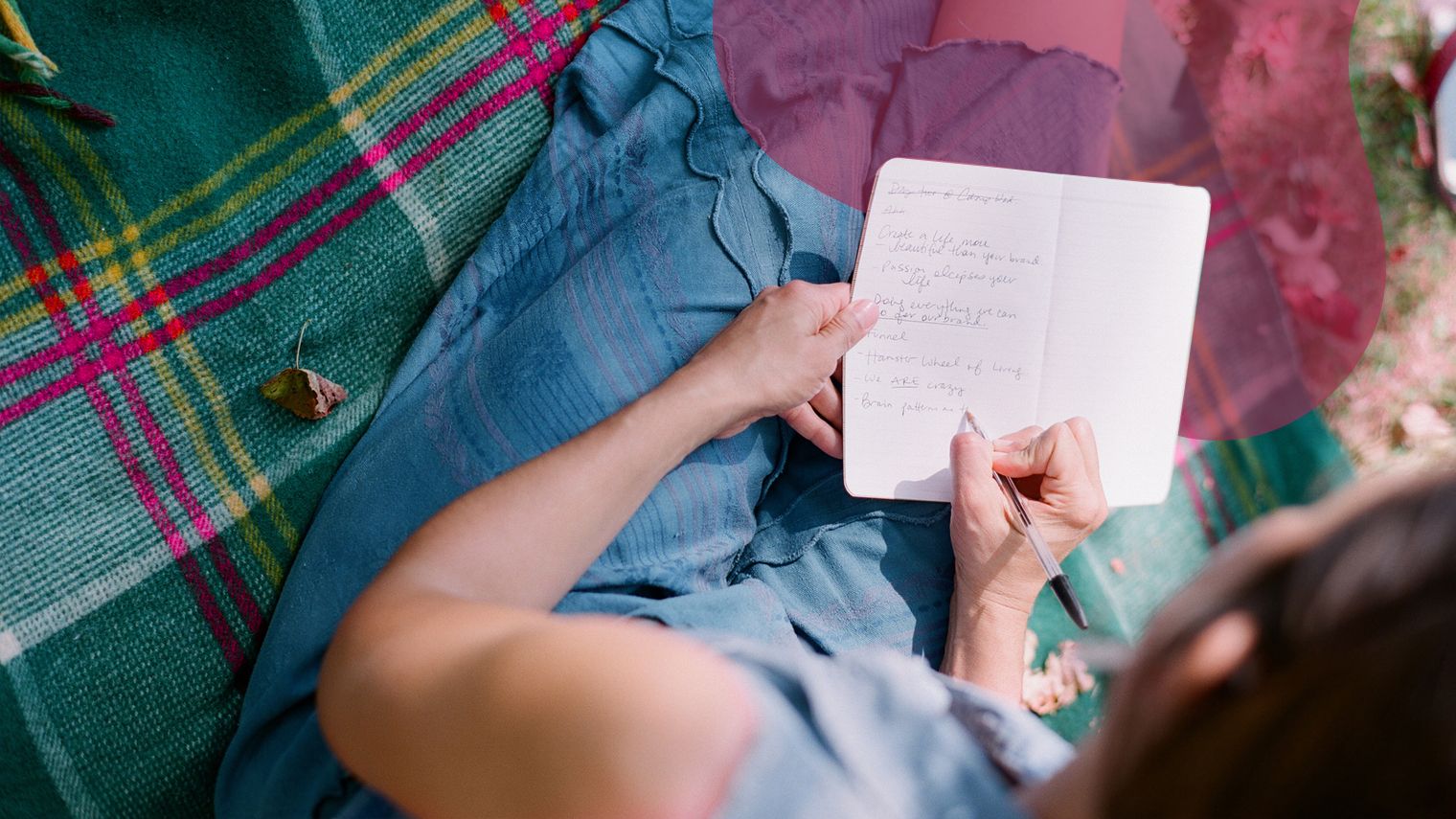How I Navigate Survivorship and Survivor’s Guilt
August 19, 2022
Content created for the Bezzy community and sponsored by our partners. Learn More

Lexia Frank/Stocksy United
Survivor’s guilt is a very real and difficult part of my breast cancer journey. Here are a few of my coping strategies.
When I was diagnosed with triple-positive breast cancer at 24 years old, I felt completely alone. I craved community and desperately searched social media for other young people like me who could share their experiences, triumphs, and struggles to help me feel less alone.
I eventually found that and so much more in my online community of survivors, but what I didn’t fully anticipate were the hard times that we would endure together. The thrivers that we’d lose, the recurrences, the lack of complete responses to treatment. At times, it has felt like with every bell ring, there was also a friend we had to mourn.
While I would never regret ingraining myself in the breast cancer community, survivor’s guilt is a very real and very difficult part of the journey. Survivorship, and life after cancer in general, isn’t something we’re prepared for in the oncology office. Add immense guilt on top of the anxiety and fear that many of us feel after treatment, and it can be nearly debilitating at times.
Here are a few coping tips that I’ve picked up throughout my “survivorship” journey over the past 4 years.


Build a mindfulness practice
A mindfulness practice looks different for everyone. It’s taken me a few years to figure out what works best for me.
But one thing I have found is that no matter what your practice looks like, routine and consistency are key. I find mindfulness through movement, not only because it gives me a space to channel my focus and nervous energy, but also because research shows that physical activity may be a helpful tool to fight cancer recurrence.
My routine looks something like this: I meditate for at least 10 minutes every day, go on daily walks of at least 20 minutes, work out five times a week, and journal to let it all out when needed. Having this consistent, reliable routine helps me work past the anxiety and fear that stems from the unknown of survivorship.
Survivorship, and life after cancer in general, isn’t something we’re prepared for in the oncology office.
It’s also my alone time to reflect on my friends who are no longer in remission or who have transitioned from their earthly lives. A lot of times, questions keep ringing in my mind like, “Why them? Why not me?”
I give myself the space to work through these thoughts and feelings in whatever way suits me best at that moment during my daily mindfulness time. Sometimes this looks like writing down all of the people and the things that keep me going in my journal. Sometimes it means writing down my goals. Sometimes it means writing their names on a special page in my journal that I keep for my angels.
There’s no one answer but I encourage you to take the time to find a routine that works best in your lifestyle and stick with it. It has been the biggest game-changer for me in navigating survivorship.
Understand the research
So much of survivorship is just navigating anxiety and fear of recurrence. Through lots of soul searching and therapy with a psychiatrist who specializes in working with oncology patients, I have learned that my anxiety stems from the unknown.
My cancer came without a family history, at a young age, and at a time in your life when most people feel indestructible. It was completely unpredictable! That unpredictability is something I’ve found many other survivors struggle with in their survivorship journey and is a fear that I confront daily.
No one is able to predict the future, and with cancer, there are many unknowns. But we can look to extensive research and speak with our care teams to make educated decisions about our health plan and give ourselves well-informed glimpses into our future.
So much of survivorship is just navigating anxiety and fear of recurrence.
My oncologist dedicates a large chunk of our check-up appointments to share research, as he knows this is something that I find extremely beneficial to my mental health. He also always brings the latest studies and researched-backed evidence when presenting potential shifts in my care plan, like when we made the decision to end my combination treatment of Lupron and Letrozole at the 3-year mark instead of the originally planned 5-year treatment plan.
Press your care team to present studies and respected research to you. Having firm statistics that are relevant to your case and vetted by your own care team will help with the anxieties that tend to bubble up throughout survivorship.
The power of storytelling
I’ve had my fair share of dark moments where I find myself swirling in guilt and repeatedly asking myself, “Why me?” I may never know the answer to that, but something I do know is that I have been able to make a real, meaningful difference in the lives of many others that are in the same boat as myself, simply by sharing my story.
There is such immense power in storytelling in the breast cancer community that it’s hard to even comprehend. Nothing feels better than finding that one blog post or TikTok or Instagram caption that resonates with you and feels like the words were taken right out of your head.
I find my strength through community and by sharing my story publicly or in small groups. By doing so, I’m able to work through the roller coaster of emotions that is survivorship with people who understand exactly what I’m going through.
Fact checked on August 19, 2022
1 Source


Like the story? React, bookmark, or share below:
Have thoughts or suggestions about this article? Email us at article-feedback@bezzy.com.
About the author